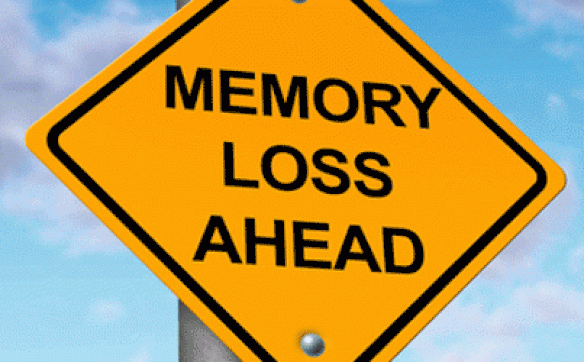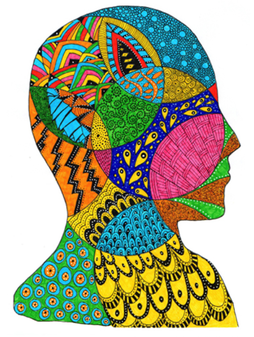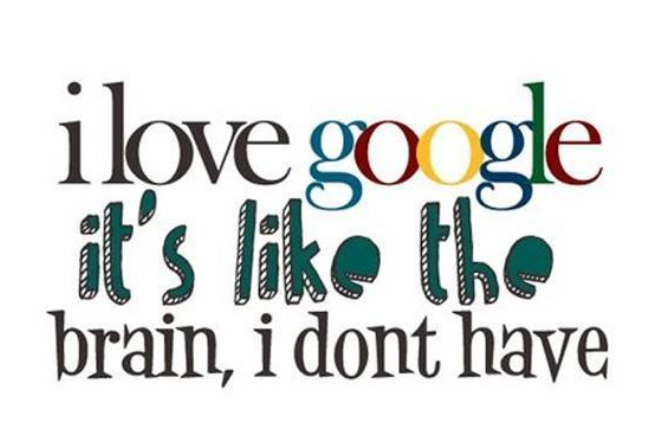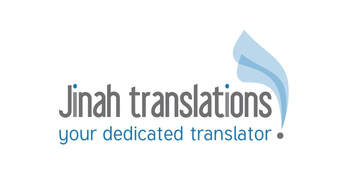It happens to all of us at some time… Someone interrupts you during a conversation and soon after, you don't remember what you wanted to say.
You have a black-out and no matter how hard you try to remember what you wanted to say, it does not come to the surface. You will often be told: "it probably wasn't that important". Yet your brain makes every effort to find what you've lost. Or you are 100% sure that you placed your glasses, keys or Smartphone in their dedicated place and yet you still cannot find them. Eventually, you review all of your actions in reverse order, hoping to find the 'lost item'. And when this also doesn't help, you simply decide to continue your daily activities. Only to find your glasses or Smartphone in the cupboard next to the cornflakes. A very illogical place, where you probably left it when your daughter asked something and you dropped everything to help her. Sound familiar?
Unfortunately, for many people with MS this is a daily affair. Not only because they are absent-minded or disturbed. Extreme fatigue is also often disruptor, therefore, resulting in loss of focus.
I also sometimes forget things and I increasingly need ‘tips’ to remind me of appointments. At the beginning of December 2018 , I had the opportunity to participate in a number of group sessions on 'MS and cognition'(thanks to the MS League Flanders) with Wouter Lambrecht, clinical neuropsychologist at the ‘brain injury practice’ group in Ghent. Following these sessions seemed to be the ideal way to get a little more grip and advice from people who work on patients with a brain injury on a daily basis. It was an instructive experience in which we also had the opportunity to look for ways to remember things with companions in misfortune. It needs to be said: it's not because our brain occasionally abandons us that creative thinking has completely stopped. I have also received many useful tips from fellow sufferers.
Through the group sessions, I learned to train my memory to better remember texts. Reading papers, websites and books is an important part of our daily lives. Many people with a brain injury notice that they have a harder time remembering what they read.
This can be a nuisance, especially when something important is involved. Through the training I learned that it was important to eliminate as many distractions as possible in order to stay focussed on my text. There are external distractions (from the outside: for example, sounds around you) and internal distractions (from the inside: for example, your own thoughts). When I want to read a text in full concentration, I switch off the radio/TV or telephone and I look for a quiet place. I also make sure I have enough time to read the text. When I have to read a long text, I divide the reading time into blocks of 20 minutes. In between times, I put a wash in the washing machine or take a walk in the garden, for example. By dividing everything into parts, I can read the text with my full attention, while taking the opportunity to do some small household jobs. So it's a win/win situation that works very well for me. At the end of the day, I can look back with great satisfaction on what I did.
It is also important to first view the text as a whole. You can often see what's important in the layout. And when there is no clear layout in the text, I sometimes write what is important in the margin or mark it with a highlighter. If necessary, I make a summary of the most important elements of the text and I repeat it several times so that I can remember it more easily. Reading in this way requires more time and requires a little more effort than when you read for relaxation. I use this technique only when I want to remember the text (for example, for work, when I have to give a lecture...).
I am often distracted or forget what I was doing, because I quickly do something in between doing other things (for example, putting the green waste container outside, when I actually want to feed the rabbit) or when I am in a hurry (for example, when someone rings the doorbell and I want to open the door). I actually do such things without really thinking about it, it has become a kind of automatism. During the sessions, I learned that it was important to recognise these distractions, in order to learn to manage them more consciously and to make choices.
I can choose not to enter the distraction and complete what I was doing. Or I can give up what I was doing for a moment and then pick up the thread again. If I choose not to be distracted, it helps to write down what is in my mind or the question I have been asked (so that I can always do it later). I also had the advice to use a 'reminder signal' (for example, a beep that sounds every 10 minutes) to alert me and to keep me on task.
Or I switch off the radio, television and all external interference and find a quiet place, where there is almost no distraction.
In addition, I must also learn to say more often to the person who calls me: "wait a minute, it is a bit inconvenient at the moment. I want to finish this first and will answer your question later." Or I listen briefly to the question that is asked and then indicate when I can help. Sometimes I also write it in my online calendar and get a signal on my Smartphone so I do not lose sight of it.
If I decide to answer the question first or if I decide to open the door first, it is important that something helps me to remember what I was doing before. For example, if I was emptying the dishwasher and the doorbell rang, I would take a tea towel when opening the door. That way I know that I was busy with an activity in the kitchen. It may sound strange, but it really works! And most people are not even surprised to find that sometimes I walk around the house with objects or if suddenly a beep sounds. They know that I need those 'reminders', they are my cues.
In my kitchen, I painted part of the wall with blackboard paint. When something comes to mind that I definitely should not forget, I write it down on my board. Payments, appointments, returning books to the library and sometimes even taking medication... These are all things that end up on this board. My husband and daughters know that they must leave everything on the board and certainly not to erase anything. At home, I also have a number of dedicated places to put my keys, smartphone and handbag. When I get home, I immediately put those things in their dedicated spot. This allows me to leave for work quietly in the morning, without first having to search for everything for half an hour or so.
Sometimes I dare to use the memory of others and I ask my daughters or my superman-husband if they would remind me that I still have to remove the laundry from the washing machine and hang it on the line. Occasionally, this can go wrong, because they themselves are busy with all sorts of things and have, therefore, forgotten to 'help me remember' that I still have to do something. Often the question to help me remember something can also work differently and my hubby or daughter have already hung the laundry out on my behalf. They even suspect that I use them as a reminder to get things done that I do not have time for. I should have thought of that before! :)
Finally, we have also received many tips on how to train the brain, using apps or computer games. By exercising and repeating actions regularly you stay alert. Know that with cognitive rehabilitation you have to be patient. "Start slowly and go slow" was advised during the group sessions. Also, do not expect miracles immediately, some injuries cannot be repaired and certain functions will always be less fast/less effective. Cognition is also closely related to physical fitness and your emotional state. There is often also an interaction between the two. That is why it is important to monitor how physically active you are. How do you feel emotionally? How you are doing on the load and fatigue front? All of these elements play an important role with regard to your cognitive health.
The group sessions also made me realise that I am certainly not alone in dealing with these 'invisible complaints'. Many patients suffer from 'over-stimulation' when there are too many distractions around them and they too often get frustrated by this. We were advised to explain to people how difficult it is to manage all these incentives and to indicate that this is mainly due to the fact that MS causes short circuits in the brain.
It is important to inform family, friends and colleagues about the nature and severity of disabilities. It is an invisible wound. So do not assume that the environment understands what is going on. When you give people the necessary explanations, they generally also understand the fact that you sometimes want to be alone to have time to store some things in your brain.
By participating in these sessions, I realised that I can still keep my brain active with the help of these necessary tools and tricks. In the midst of difficulties, are the possibilities...
You have a black-out and no matter how hard you try to remember what you wanted to say, it does not come to the surface. You will often be told: "it probably wasn't that important". Yet your brain makes every effort to find what you've lost. Or you are 100% sure that you placed your glasses, keys or Smartphone in their dedicated place and yet you still cannot find them. Eventually, you review all of your actions in reverse order, hoping to find the 'lost item'. And when this also doesn't help, you simply decide to continue your daily activities. Only to find your glasses or Smartphone in the cupboard next to the cornflakes. A very illogical place, where you probably left it when your daughter asked something and you dropped everything to help her. Sound familiar?
Unfortunately, for many people with MS this is a daily affair. Not only because they are absent-minded or disturbed. Extreme fatigue is also often disruptor, therefore, resulting in loss of focus.
I also sometimes forget things and I increasingly need ‘tips’ to remind me of appointments. At the beginning of December 2018 , I had the opportunity to participate in a number of group sessions on 'MS and cognition'(thanks to the MS League Flanders) with Wouter Lambrecht, clinical neuropsychologist at the ‘brain injury practice’ group in Ghent. Following these sessions seemed to be the ideal way to get a little more grip and advice from people who work on patients with a brain injury on a daily basis. It was an instructive experience in which we also had the opportunity to look for ways to remember things with companions in misfortune. It needs to be said: it's not because our brain occasionally abandons us that creative thinking has completely stopped. I have also received many useful tips from fellow sufferers.
Through the group sessions, I learned to train my memory to better remember texts. Reading papers, websites and books is an important part of our daily lives. Many people with a brain injury notice that they have a harder time remembering what they read.
This can be a nuisance, especially when something important is involved. Through the training I learned that it was important to eliminate as many distractions as possible in order to stay focussed on my text. There are external distractions (from the outside: for example, sounds around you) and internal distractions (from the inside: for example, your own thoughts). When I want to read a text in full concentration, I switch off the radio/TV or telephone and I look for a quiet place. I also make sure I have enough time to read the text. When I have to read a long text, I divide the reading time into blocks of 20 minutes. In between times, I put a wash in the washing machine or take a walk in the garden, for example. By dividing everything into parts, I can read the text with my full attention, while taking the opportunity to do some small household jobs. So it's a win/win situation that works very well for me. At the end of the day, I can look back with great satisfaction on what I did.
It is also important to first view the text as a whole. You can often see what's important in the layout. And when there is no clear layout in the text, I sometimes write what is important in the margin or mark it with a highlighter. If necessary, I make a summary of the most important elements of the text and I repeat it several times so that I can remember it more easily. Reading in this way requires more time and requires a little more effort than when you read for relaxation. I use this technique only when I want to remember the text (for example, for work, when I have to give a lecture...).
I am often distracted or forget what I was doing, because I quickly do something in between doing other things (for example, putting the green waste container outside, when I actually want to feed the rabbit) or when I am in a hurry (for example, when someone rings the doorbell and I want to open the door). I actually do such things without really thinking about it, it has become a kind of automatism. During the sessions, I learned that it was important to recognise these distractions, in order to learn to manage them more consciously and to make choices.
I can choose not to enter the distraction and complete what I was doing. Or I can give up what I was doing for a moment and then pick up the thread again. If I choose not to be distracted, it helps to write down what is in my mind or the question I have been asked (so that I can always do it later). I also had the advice to use a 'reminder signal' (for example, a beep that sounds every 10 minutes) to alert me and to keep me on task.
Or I switch off the radio, television and all external interference and find a quiet place, where there is almost no distraction.
In addition, I must also learn to say more often to the person who calls me: "wait a minute, it is a bit inconvenient at the moment. I want to finish this first and will answer your question later." Or I listen briefly to the question that is asked and then indicate when I can help. Sometimes I also write it in my online calendar and get a signal on my Smartphone so I do not lose sight of it.
If I decide to answer the question first or if I decide to open the door first, it is important that something helps me to remember what I was doing before. For example, if I was emptying the dishwasher and the doorbell rang, I would take a tea towel when opening the door. That way I know that I was busy with an activity in the kitchen. It may sound strange, but it really works! And most people are not even surprised to find that sometimes I walk around the house with objects or if suddenly a beep sounds. They know that I need those 'reminders', they are my cues.
In my kitchen, I painted part of the wall with blackboard paint. When something comes to mind that I definitely should not forget, I write it down on my board. Payments, appointments, returning books to the library and sometimes even taking medication... These are all things that end up on this board. My husband and daughters know that they must leave everything on the board and certainly not to erase anything. At home, I also have a number of dedicated places to put my keys, smartphone and handbag. When I get home, I immediately put those things in their dedicated spot. This allows me to leave for work quietly in the morning, without first having to search for everything for half an hour or so.
Sometimes I dare to use the memory of others and I ask my daughters or my superman-husband if they would remind me that I still have to remove the laundry from the washing machine and hang it on the line. Occasionally, this can go wrong, because they themselves are busy with all sorts of things and have, therefore, forgotten to 'help me remember' that I still have to do something. Often the question to help me remember something can also work differently and my hubby or daughter have already hung the laundry out on my behalf. They even suspect that I use them as a reminder to get things done that I do not have time for. I should have thought of that before! :)
Finally, we have also received many tips on how to train the brain, using apps or computer games. By exercising and repeating actions regularly you stay alert. Know that with cognitive rehabilitation you have to be patient. "Start slowly and go slow" was advised during the group sessions. Also, do not expect miracles immediately, some injuries cannot be repaired and certain functions will always be less fast/less effective. Cognition is also closely related to physical fitness and your emotional state. There is often also an interaction between the two. That is why it is important to monitor how physically active you are. How do you feel emotionally? How you are doing on the load and fatigue front? All of these elements play an important role with regard to your cognitive health.
The group sessions also made me realise that I am certainly not alone in dealing with these 'invisible complaints'. Many patients suffer from 'over-stimulation' when there are too many distractions around them and they too often get frustrated by this. We were advised to explain to people how difficult it is to manage all these incentives and to indicate that this is mainly due to the fact that MS causes short circuits in the brain.
It is important to inform family, friends and colleagues about the nature and severity of disabilities. It is an invisible wound. So do not assume that the environment understands what is going on. When you give people the necessary explanations, they generally also understand the fact that you sometimes want to be alone to have time to store some things in your brain.
By participating in these sessions, I realised that I can still keep my brain active with the help of these necessary tools and tricks. In the midst of difficulties, are the possibilities...
Tips & tricks to remaining focussed
- Do one task at a time
- Plan ahead and provide structure
- Provide variety in a task
- Schedule breaks and do something fun/relaxing
- Stick to your limits
- Switch off your mobile phone and do certain tasks only when you are alone
- Avoid an inappropriate environment/times
Tips & tricks to keep your attention during conversations
- Does the conversation partner speak clearly?
- Switch off distractions (radio, close the window ...)
- Ask people not to talk all at once
- Maintain an active attitude with the conversation partner and make eye contact.
- Let everything sink in, take breaks
- Ask to repeat something if you think you have misunderstood
- If necessary, summarise what has been said
- Ask yourself when you have received sufficient information. Do I agree with this?
- Take notes that may be useful for a future interview.
Tricks and tools to remember things
- Write down information
- Use audio signals
- Use the memory of others
- Give more attention and time to information you want to remember
- Return to a specific place/situation
- Use repetition
- Find connections between existing and new information
- Form images in your mind to remember information
- Put the things you often lose in a dedicated place
Would you like more information on the brain injury practice in Ghent? Then click on this link (in Dutch): www.hersenletselpraktijk.be/
Interesting website for people with disabilities (in Dutch):
www.sig-net.be/nl/home_1.aspx
Dutch-English translation by Jinah Translations gcv
www.jinahtranslations.com
[email protected]
Many thanks to Hilde Mortelmans for the translation of the above text
- Do one task at a time
- Plan ahead and provide structure
- Provide variety in a task
- Schedule breaks and do something fun/relaxing
- Stick to your limits
- Switch off your mobile phone and do certain tasks only when you are alone
- Avoid an inappropriate environment/times
Tips & tricks to keep your attention during conversations
- Does the conversation partner speak clearly?
- Switch off distractions (radio, close the window ...)
- Ask people not to talk all at once
- Maintain an active attitude with the conversation partner and make eye contact.
- Let everything sink in, take breaks
- Ask to repeat something if you think you have misunderstood
- If necessary, summarise what has been said
- Ask yourself when you have received sufficient information. Do I agree with this?
- Take notes that may be useful for a future interview.
Tricks and tools to remember things
- Write down information
- Use audio signals
- Use the memory of others
- Give more attention and time to information you want to remember
- Return to a specific place/situation
- Use repetition
- Find connections between existing and new information
- Form images in your mind to remember information
- Put the things you often lose in a dedicated place
Would you like more information on the brain injury practice in Ghent? Then click on this link (in Dutch): www.hersenletselpraktijk.be/
Interesting website for people with disabilities (in Dutch):
www.sig-net.be/nl/home_1.aspx
Dutch-English translation by Jinah Translations gcv
www.jinahtranslations.com
[email protected]
Many thanks to Hilde Mortelmans for the translation of the above text




 RSS-feed
RSS-feed
